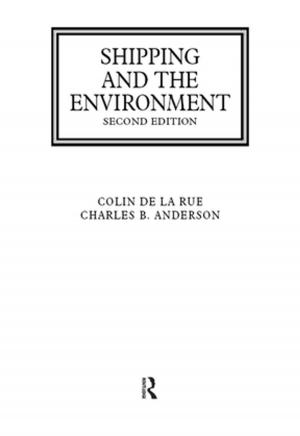| Author: | Brian Leiter | ISBN: | 9781317635857 |
| Publisher: | Taylor and Francis | Publication: | October 10, 2014 |
| Imprint: | Routledge | Language: | English |
| Author: | Brian Leiter |
| ISBN: | 9781317635857 |
| Publisher: | Taylor and Francis |
| Publication: | October 10, 2014 |
| Imprint: | Routledge |
| Language: | English |
Both an introduction to Nietzsche’s moral philosophy, and a sustained commentary on his most famous work, On the Genealogy of Morality, this book has become the most widely used and debated secondary source on these topics over the past dozen years. Many of Nietzsche’s most famous ideas - the "slave revolt" in morals, the attack on free will, perspectivism, "will to power" and the "ascetic ideal" - are clearly analyzed and explained. The first edition established the centrality of naturalism to Nietzsche’s philosophy, generating a substantial scholarly literature to which Leiter responds in an important new Postscript. In addition, Leiter has revised and refreshed the book throughout, taking into account new scholarly literature, and revising or clarifying his treatment of such topics as the objectivity of value, epiphenomenalism and consciousness, and the possibility of "autonomous" agency.
Both an introduction to Nietzsche’s moral philosophy, and a sustained commentary on his most famous work, On the Genealogy of Morality, this book has become the most widely used and debated secondary source on these topics over the past dozen years. Many of Nietzsche’s most famous ideas - the "slave revolt" in morals, the attack on free will, perspectivism, "will to power" and the "ascetic ideal" - are clearly analyzed and explained. The first edition established the centrality of naturalism to Nietzsche’s philosophy, generating a substantial scholarly literature to which Leiter responds in an important new Postscript. In addition, Leiter has revised and refreshed the book throughout, taking into account new scholarly literature, and revising or clarifying his treatment of such topics as the objectivity of value, epiphenomenalism and consciousness, and the possibility of "autonomous" agency.















